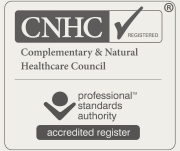SIBO
Small intestinal bacterial overgrowth (SIBO) is an overgrowth of bacteria in the small intestine which can lead to malabsorption.

Most of your nutrients are absorbed in the small intestine so SIBO can lead to malabsorption of vitamins and minerals which can lead to nutrient deficiency. When there are healthy levels of bacteria in the small intestine, they do a vital job of digesting and absorbing these nutrients but if they overgrow damage to the gut lining can occur and unpleasant symptoms such as flatulence, bloating, abdominal pain, or constipation and/or diahorrea can occur as well as other systemic problems like brain fog.
What are the symptoms of SIBO?
- Bloating
- Flatulence
- Nausea
- Belching
- Abdominal pain
- Fullness after eating
- Diarrhoea and/or constipation
- Weight loss
- Joint pain
- Eczema or skin issues
- Rosacea
- Asthma
- Fatigue
What causes SIBO?
- Reduced motility of the digestive tract – which can be due to other conditions such as diverticulosis, pancreatitis, surgery or injury to the small intestine.
- Some medications like proton pump inhibitors (Omeprazole) and immune suppressant medications.
- Celiac disease.
- Aging – digestion slows down, and stomach acid levels drop.
- Low stomach acid – essential to kill off bacteria as it enters the body through the mouth.
- Gut bacteria imbalances – in the large intestine which can translocate to the small intestine due to issues with the connecting valve.
- Food poisoning.
Conventional approach
A low FODMAP diet is usually advised alongside antibiotics to kill off the bacteria.
Things you can do:
- Try an elimination diet. Reduce high FODMAP foods to see if these are triggering symptoms.
These foods include;
• Garlic, Leek and onions
• Brassica vegetables like cauliflower, broccoli, Brussel sprouts, cabbage,
• Beans and lentils
• Fruits like apples, pears and peaches
• Wheat
• Dairy - Eat smaller meals. 5-6 meals a day instead of 3. This helps with digestion and also means the food isn’t sitting in the stomach for as long, effective stomach acid levels.
- Reduce stress levels – take up meditation, deep breathing, yoga or tai chi or walk in nature daily.
What can Functional Medicine do to support?
- Use breath testing to determine if SIBO is present, the levels of hydrogen and methane being produced and the extent of the overgrowth.
- Identify the root causes of your SIBO and address the issue from the root cause.
- Utilise a low FODMAP diet alongside anti-microbial herbs to get the SIBO under control.
- Guide you through reintroduction of these foods and support all aspects of your digestive health to keep SIBO at bay.
5 Pillars of Functional Medicine

Managing Stress
Chronic stress can lead to an increased risk for many diseases through
suppression of the immune system. Lets find ways to manage stress and to
nurture, to calm, to re-set and restore the immune and nervous system.

Sleep
Sleep is the first like of defence against infectious disease. Getting good quality
sleep is restorative and preventative. We’ll work together to ensure you have
a good sleep routine and get a least 7 – 9hrs restful sleep a night.

Nutrition
Food is our medicine; it tells us what genes to switch on or off, it gives the cells
the nutrients that the body needs to function and provides the energy that we
need to lead an enriched life. Here, we’re all about enjoying food for life.

Relationships
Toxicity is not just about chemicals and pesticides; toxicity can come from
relationships and can affect our physical and mental health and well-being.
We’re all for healthy relationships that help us to thrive and grow as human beings.

Exercise
Lack of exercise is the primary cause of most chronic diseases and also accelerates ageing.
Exercising can prevent or delay the onset of chronic disease and it supports
better sleep, assists in weight control, improves mood and boosts energy.
SIBO and Functional Medicine
Do you suffer from SIBO and have tried all the usual approaches?
Functional Medicine can help you, simply book an online consultation or arrange a free 15 minute discovery call and find out how we can help.





